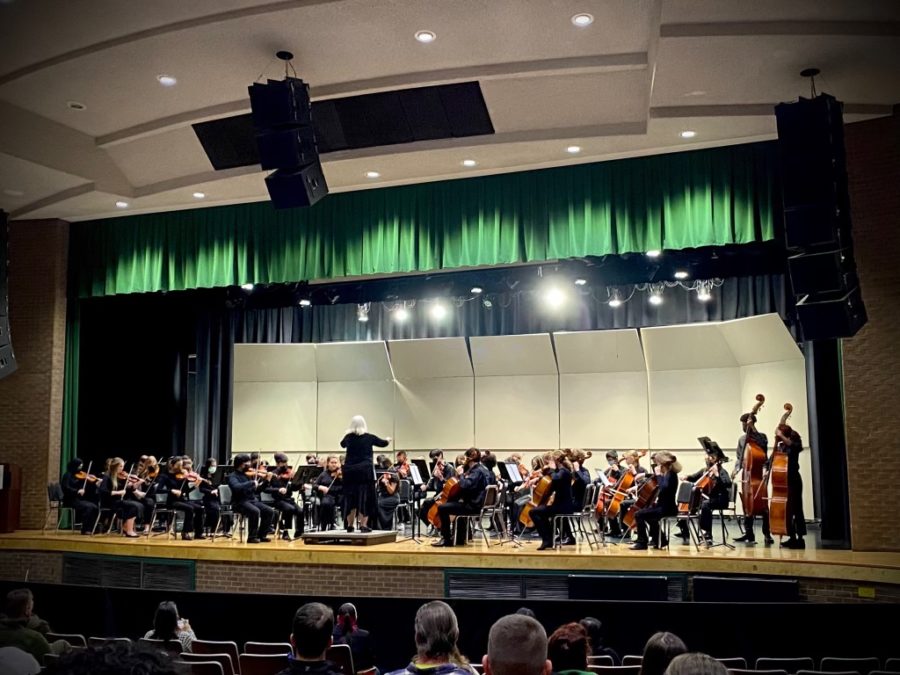Music classes all earn top marks at Assessment
April 6, 2022
Band, chorus and orchestra all sent groups to compete at this year’s Assessment. Each group that performed earned ‘Superior’ marks and won Ocean Lakes’ music program a blue ribbon.
“Assessment is the SOL of music,” said Karey Sitzler, the orchestra director. “Students perform in front of a panel of three judges and they’re scored on their performance by a scale of one to six over several categories. Their scores are then averaged out into their actual score.”
There are six levels students may perform at. The scale is from one to six, with six as the hardest level of music for high school musicians. Orchestra and band sent groups to compete with music at grade four and music at grade six, and chorus will perform music at grade six.
“We’re sending 94 [orchestra] students to Assessment this year,” said Sitzler. “For most of them, this is their first time going.”
Orchestra has not been to Assessment since March 2020, a week before the original shutdown. Chorus and band have not been to Assessment since 2019. Chamber Orchestra had their Assessment on March 3 while Camerata Orchestra performed March 4, not groups earned Superiors. Symphonic Band and Wind Symphony performed on March 11, and both bands won Superiors. Ocean Lakes is now a 12-time Virginia Honor Band, which means that Ocean Lakes’ band has received Superior rankings for twelve years in a row. Chorus performed March 26, whose performance solidified the trio of blue ribbons for Ocean Lakes.
“This is our first Assessment in three years, so there is going to be some nerves with it. But the best remedy for that is preparation,” said John Parker, band director.
Symphonic Band, grade four, and Wind Symphony, grade six, will each perform three pieces before they proceed to sight-read. Students sight-read two grade levels below the pieces they perform. Band and orchestra students get seven minutes each to quietly look over a piece of music they have never seen before. Chorus students get two minutes to look over their sight-reading piece. With help from their director, students highlight rhythms and notes they may find difficult. Once the selected time has passed, students are asked to perform the piece.
“The sight-reading was one of the harder things I’ve had to do for band,” said first-time assessment student Caitlin LaBrecque. “We weren’t sure what kind of music we were getting.”
Students are graded on their sight-reading performance, and the score is averaged with their performance scores. The grade scale ranges from one to six, with one the best as ‘Superior.’
“I’m really proud of them. They worked really hard on really hard pieces,” said Sitzler. “We started working after their December concert– a little over two months now, and they’ve made something spectacular out of it. I’m proud of us.”


